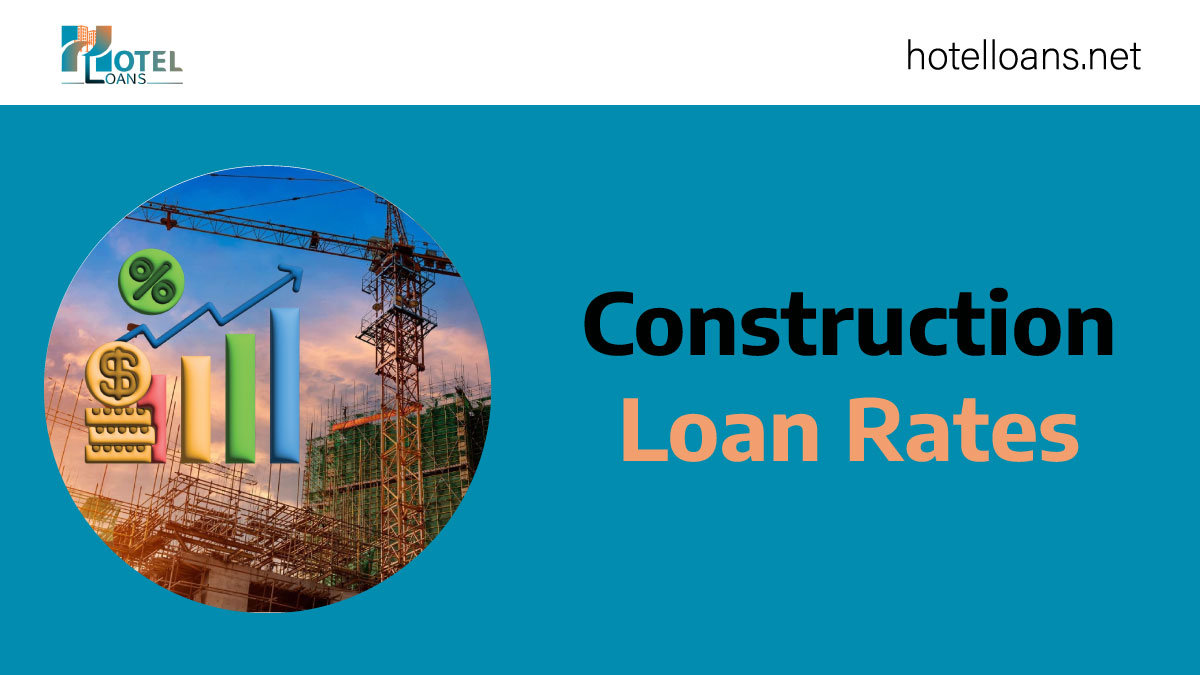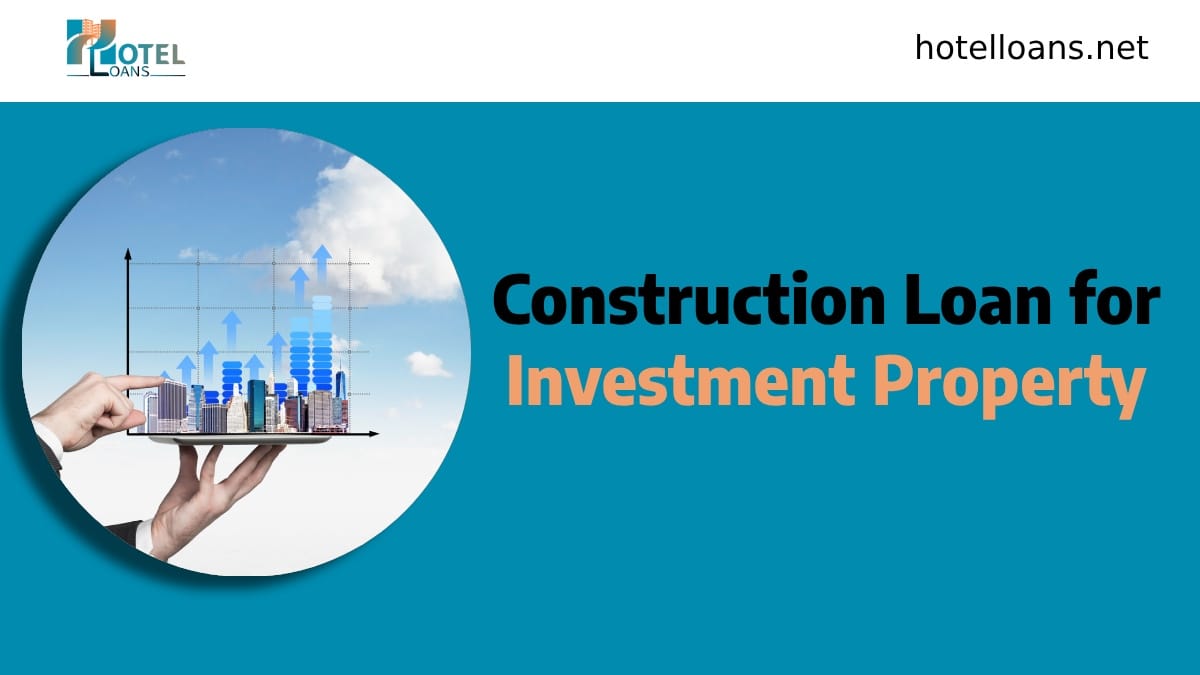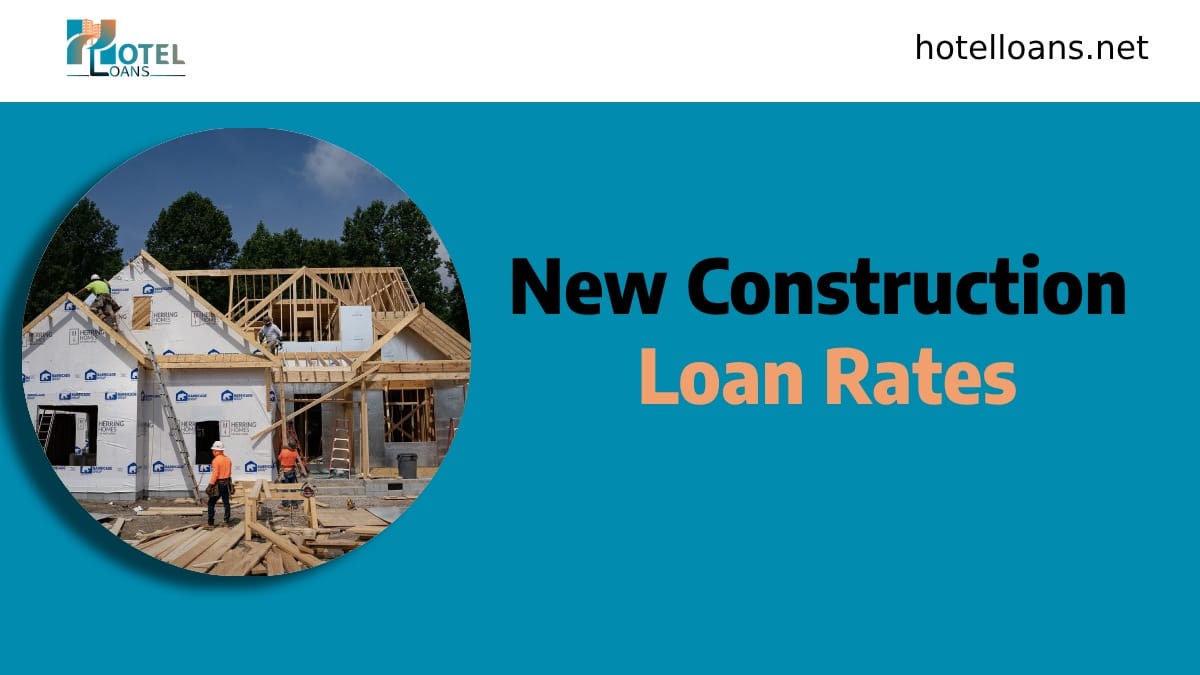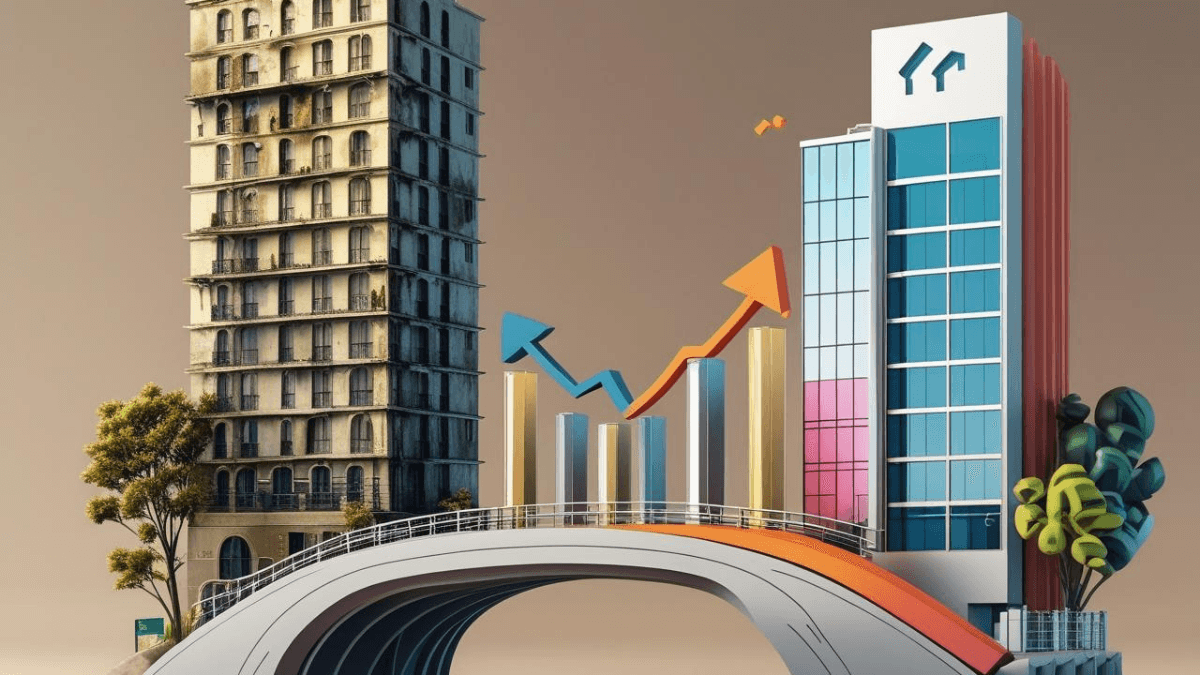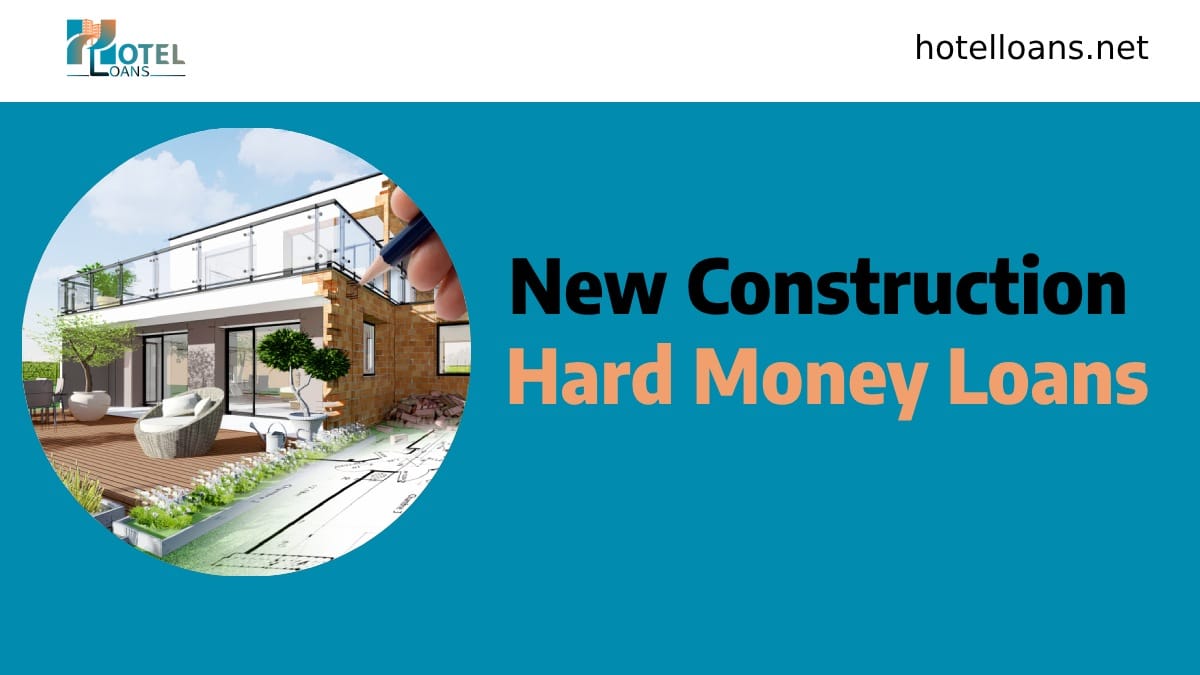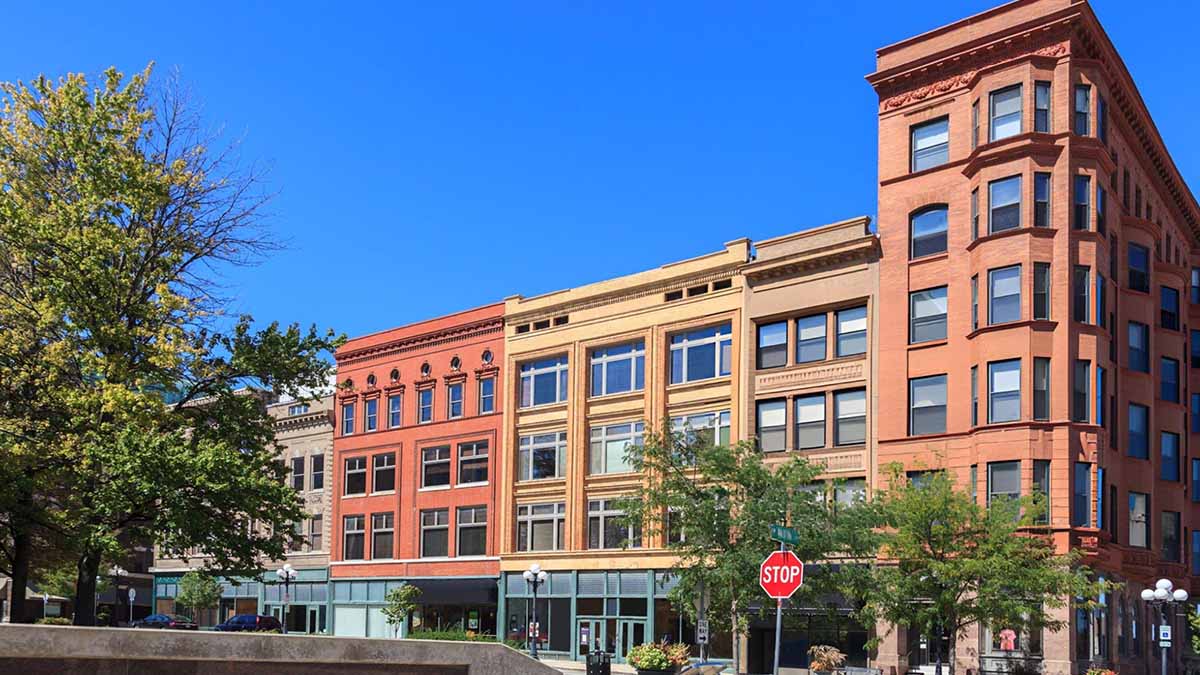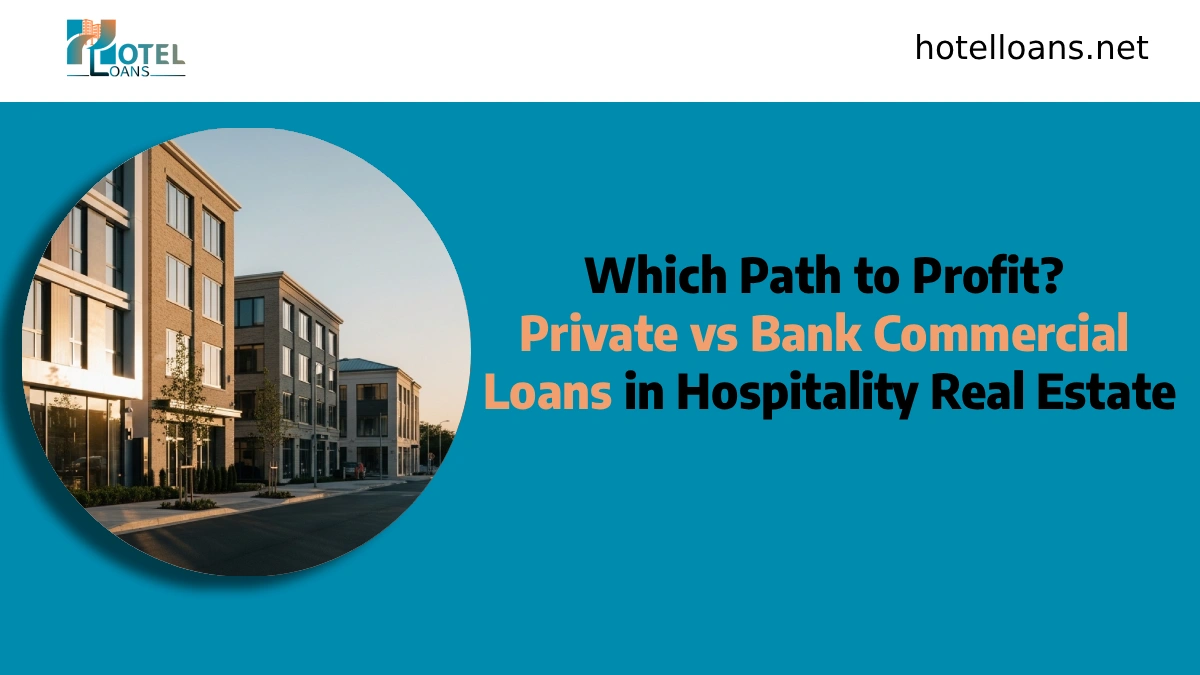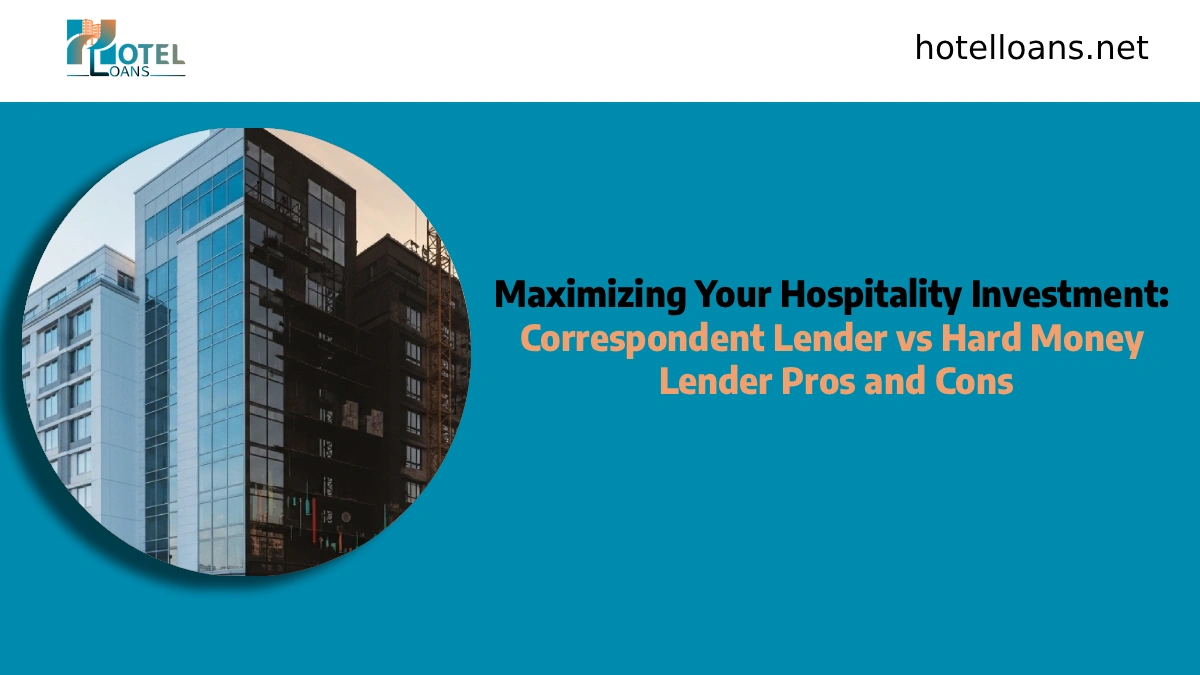Now that you’ve found the perfect place for your dream boutique hotel and done a good market study, you’re ready to start construction. But getting money for construction projects can feel like going through the unknown. There are a lot of rules and laws that can make it hard for many business owners to get reasonable construction loan rates. Also, finding a “good” interest rate is not always easy. Please let us know at HotelLaons.Net how we can help.
Our business specializes in hotel real estate finance and has been underwriting loans for 30 years, so we understand how the tricky world of lending works. Construction loans are more complicated than regular mortgages because several payments are paid as the construction project progresses. You need to know what changes loan rates if you want your project to make money.
This article will show you that there are no such things as “hospitality construction loan rates.” Still, the loan rates you can get depend on only a few things true for hotel projects. We’ll discuss these things and how to get the best fund possible. HotelLaons.Net helps many lodging companies get the needed cash, like hotels, motels, restaurants, spas, and more.
Table of Contents
ToggleUnderstanding Construction Loan Rates
What are Construction Loan Rates?
The interest rate on a construction loan is the amount of money borrowed for a construction project. Construction loan rates usually change based on a benchmark rate, such as the prime rate or the SOFR (Secured Overnight Financing Rate). Rates on permanent mortgages stay the same. In other words, your loan rate can change while construction occurs. People think construction loans are more risky than permanent loans because the collateral, the finished construction, doesn’t exist yet. Lenders charge higher interest rates to compensate for this risk than for stable homes that bring in money. The construction loan is usually turned into a permanent mortgage with a set rate once the construction is finished.
Factors Affecting Construction Loan Rates
The interest rates on your construction loan will depend on several important factors, including:
- Prime Rate: This is the interest rate banks charge their best customers with good credit. It is used as a base for many construction loans. Rates for construction loans are often given as a difference from the prime rate, such as prime + 1%. Usually, when the prime rate goes up, so do construction loan rates.
- Lender’s Evaluation of Risk: Lenders carefully consider the risk that comes with a project. This includes checking the borrower’s liquidity, seeing if they have experience in development, and seeing if the project is possible based on market demand, cost estimates, and the developer’s track record. Rates are better for people with lower risk profiles.
- Loan Amount and Loan-to-Value (LTV) Ratio: The loan amount and LTV ratio are also critical. The LTV ratio is the loan amount divided by the project’s estimated value. Because lenders take on more risk when the LTV is higher, interest rates tend to be higher.
- Construction Period: Rates can change depending on how long the construction period is expected to last. Longer construction timelines make the lender more vulnerable to market changes and possible cost overruns, which could lead to higher rates.
- Market Conditions: The current state of the economy, including changes in interest rates, inflation, taxes, and the cost of insurance, significantly affects loan rates and construction financing. When businesses are doing well, rates may be lower, but borrowing money may cost more when they’re not.
Interest-Only Payments
People who borrow money usually only pay interest during the construction phase. In this case, you only pay the loan’s interest, not the capital. This helps you keep track of your cash flow while the construction is ongoing since you don’t have to pay back the capital until the project is done and money starts. When the job is done, the loan becomes a permanent mortgage, and the principal and interest payments start.
Hospitality-Specific Factors Influencing Construction Loan Rates
The above factors affect loan rates for all construction loans. Still, there are a few things that are unique to hospitality projects and have a significant impact on loan rates:
- Project Type: How dangerous it is seen to be, and, by extension, loan rates are affected by the hospitality project in a big way. People generally believe constructing a hotel from the start is riskier than remodeling or moving an old one. However, repairs can be safer if the building is still being used while the work is being done, which could lead to better terms. You might also see a limited-service hotel and a full-service luxury lodge in two different ways.
- Brand Affiliation (if applicable): Well-known hotels may quickly get funding because of their firm and well-known names. Lenders are likelier to give money to projects backed by well-known brands with a customer base and tried-and-true ways of running their businesses. This could mean that loans will have better terms and rates. Lenders might be more interested in a project if it has deals to franchise with well-known brands.
- Location and Market Analysis: The most crucial thing if you want to run a hotel business is its location. People are more likely to book a hotel in a popular place than one that isn’t as well known. In the market analysis, you must show strong demand, high occupancy rates, and competitive average daily rates (ADR) for proper funding. Lenders require an easy way to make money and quickly get it back.
- Forecasts of income: It’s essential to make accurate forecasts of revenue based on solid information. Lenders pay close attention to these figures to see if the project can bring enough cash to settle the debt. Making overly optimistic predictions or not based on enough proof can set off alarm bells, leading to higher interest rates or loans being turned down. You need to study the market, your rivals, and past data to make estimates that you can trust.
- Management Expertise: Experience is key in the hotel business regarding management skills. Lenders like to give money to projects run by management teams that have done well in the past. Loan companies are more likely to provide cash if you have a good management team that knows how to run a hotel, sell it, and keep track of the money coming in and out.
- Unique Construction Challenges: There are often problems that aren’t common in construction, such as hotel projects. There are rules about following certain brands, having the right tools (like commercial kitchens and laundry rooms), and following health, safety, and accessibility rules set by the government. These issues might make things harder and cost more, impacting loan rates. The lenders will want to know how you plan to fix and lessen these issues.
Types of Construction Loans for Hospitality Investment
Hospitality investors need to know how to deal with different construction loans. Each type of loan has its rules, needs, and projects for which it can be used.
- Construction-to-Permanent Loans: These loans combine the construction loan and the permanent mortgage into a single deal, speeding up the financing process. They eliminate the need for a second close and can lead to better long-term interest rates because the lender has a better idea of how the project will work in the long term from the start. For new construction projects, these loans are often the best option.
- Bridge Loans: Bridge loans are short-term loans often used to buy or fix current hotels. They act as a “bridge” between buying a house and getting long-term loans. Bridge loans usually have shorter terms (6 to 24 months) and higher interest rates than regular loans. They are great when you need to close quickly or when a property needs repairs before it can get stable financing.
- Hard Money Loans: Hard money loans are loans backed by property. They are often used for hospitality projects that need to be completed quickly and easily, such as when time is of the essence or when traditional financing is unavailable. However, hard money loans have much higher interest rates and shorter terms than other types of loans.
- SBA Loans, USDA B&I Loans, FHA Commercial Property Investment Loans: These loan programs backed by the government can offer good terms and interest rates for constructing hotels and other places to stay. Smaller projects or those in areas that aren’t well served by banks may benefit the most from SBA loans (like the 504 loan program), USDA Business & Industry (B&I) loans, and FHA Commercial Property Investment Loans. Most of the time, they have less strict standards than regular loans. They can help people who might not be able to get loans and otherwise get the money they need. However, the application process is more complex, and there may be limits on the type of project or where it can be done.
- Conventional Construction Loans are the most common construction loans offered by banks and other lenders. They usually undergo a thorough underwriting process and require strong client finances, a good business plan, and a complete market analysis. Based on our discussion, conventional construction loan interest rates are generally competitive. Loan amounts and terms are different for each lender and each project.
- No-Doc Loans/Lite-Doc Loans/Stated Income Loans: These loan choices aim to help people who might not be able to provide standard forms of documentation, like lengthy tax returns or financial statements. They give you more freedom but usually come with higher interest rates and fees because the provider is taking on more risk. For big hotel projects, these loan types aren’t used as often. Most of the time, they are used for small purchases or repairs.
Securing the Best Construction Loan Rates for Your Hospitality Project
Getting the best construction loan rates for your hospitality project requires careful planning, preparation, and a strategic approach. To improve your chances of getting cheap financing, follow these essential steps:
- Prepare a Comprehensive Business Plan: A well-written business plan must show lenders your idea will work. It should have specific financial projections, an in-depth market analysis showing how demand and competition work, and an outline of your management team’s skills. Lenders are likelier to give you a loan if you have a good business plan.
- Improve Your Credit Score: Your credit score is significant for loans and interest rates. A better credit score shows you are responsible with money and lowers your perceived risk, making you a more appealing borrower. Work to raise your credit score before you ask for a construction loan.
- Shop Around and Compare Loan Offers: Don’t take the first deal that comes your way. Get prices from several lenders, such as private lenders, banks, and credit unions. Find the best deal for your project by comparing interest rates, loan terms, fees, and closing costs.
- Work with an Experienced Hospitality Real Estate Financial Consultant: Navigating the complicated world of construction funding can be challenging. A trained consultant like HotelLaons.Net can be invaluable. We can help you find the best financing choices and negotiate reasonable terms because we have been underwriting for 30 years and have an extensive network of more than 200 investors and private lenders.
- Negotiate Loan Terms: Do not be afraid to discuss things. While interest rates are essential, you should also consider the loan amount, repayment plan, and any penalties for early repayment. A good broker can often negotiate better terms, saving you money in the long run.
- Understand Taxes and Insurance: Property taxes and insurance costs should be considered when considering different construction loan choices. These costs can significantly affect the total cost of your project. They should be considered when figuring out if you can afford a loan.
- Consider All Construction Financing Options: Consider all kinds of construction loans available, such as construction-to-permanent loans, bridge loans, hard money loans, SBA loans, and regular construction loans. Each choice has pros and cons, and the best one for you will depend on your job’s needs and budget.
Conclusion
You need to know how the hotel project will change things for the best construction loan rates. There aren’t any standards for “hospitality construction loan rates.” You can get a loan with different terms depending on many things, like the type of project, where it’s located, the brand association, the expected revenue, the experience of the management team, and the unique challenges that come up during construction. You will have a much better chance of getting the best loans if you know about these things and do something about them beforehand. To get the project done right, you need to hire professionals.
The hospitality real estate financial advice company HotelLaons.Net has been around for 30 years. We can help you find the best ways to fund your project because we have an extensive network of over 200 funders and private lenders and know a lot about screening. We help our hospitality business clients reach their goals by giving them expert help while getting a loan. Do not try to figure out how to pay for your construction project yourself. Contact HotelLaons.Net immediately to discuss your wants for financing to construct a hotel. We are here to help you reach your goal.
FAQs
How do cost overruns affect my construction loan?
Costs that go over budget are sadly standard in construction projects. If your project costs more than you planned, you’ll need to find more money to pay for it. This can be hard, and you might need to get a second loan, settle with your current lender, or put more money into the project. Before giving more money, lenders will look closely at the reasons for the cost overruns and decide if the project can continue. To lessen the effects of possible cost increases, including a “just in case” fund in your original budget is essential. You also need a precise change order method to keep costs down during construction.
What is the difference between a recourse and a non-recourse construction loan?
With a recourse loan, the lender can go after your personal belongings if the project fails and the property used as collateral isn’t enough to pay off the loan. In a sense, you are personally responsible for the loan. With a non-recourse loan, on the other hand, the seller can only get back the collateral. They can’t take your personal things. In general, it’s harder to get non-recourse loans. They may have higher interest rates, but the user is better protected.
How are construction loan disbursements handled?
Construction loans are usually given out in steps, or “draws,” as the construction process continues. You ask the lender for a draw after you’ve finished and inspected each step. The backer will review the request, make sure the work was done, and then give the money. This process ensures the project stays on track and the money is used for what it was meant to do. To avoid delays in funding, it’s essential to know the requirements and when the draws will happen.
What are the pre-leasing requirements for hospitality construction loans?
For some hospitality projects, especially bigger ones, lenders may need a certain number of pre-leasings or confirmed reservations before giving the full construction loan. This shows that the property is in demand on the market and lowers the lender’s risk. The lender, the type of project, and the state of the market will all have different pre-leasing rules.
How does seasonality affect hospitality construction financing?
Seasonality can affect the cost of a hotel, especially if the construction is in a tourist area. Lenders might be more ready to give money to projects that will make a lot of money during busy times. They will carefully examine how the market’s seasonality might affect the project’s ability to make money and repay loans. Projects, where the seasons change a lot, might be looked at more closely and get worse loan terms.
